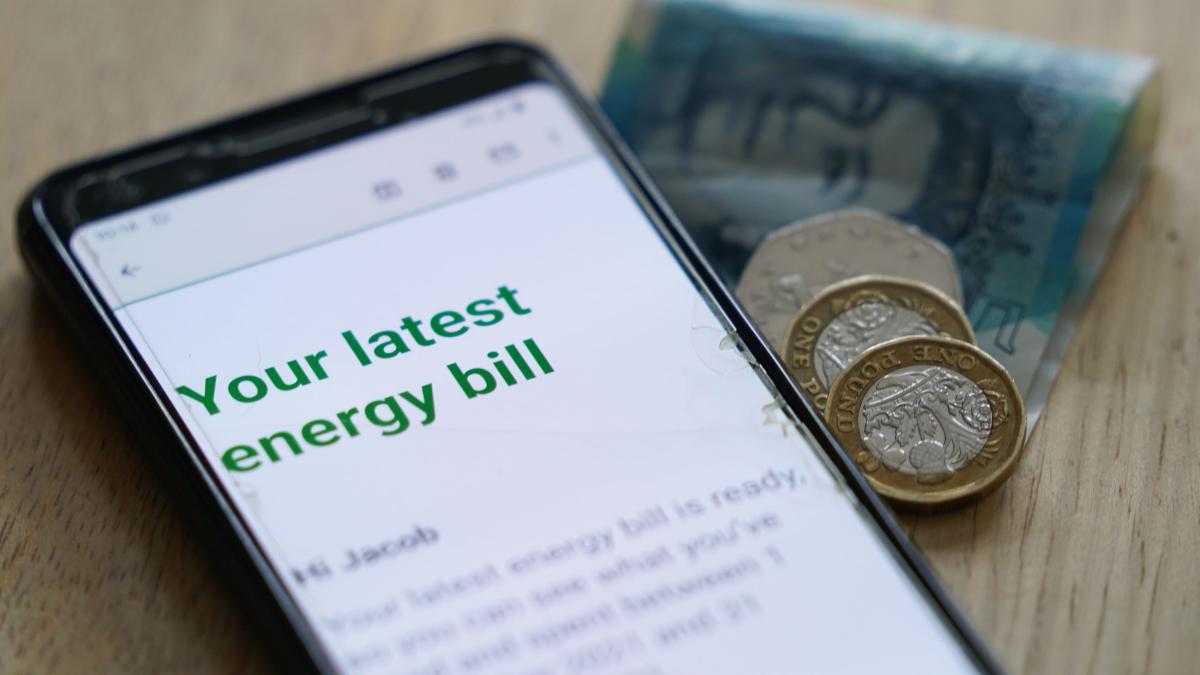Around 10 million households are being urged to send their energy meter readings to their supplier this weekend to ensure they do not pay too much when cheaper prices come into effect on July 1.
The average household energy bill will fall by 7% from next month after Ofgem lowered the price cap in response to wholesale prices.
The regulator is reducing the limit from the current £1,690 for a typical dual-fuel household in England, Scotland and Wales to £1,568, a drop of £122 over the course of a year.
That’s around £500 less than the ceiling in July last year, when it was £2,074.
But households on a standard variable tariff – as opposed to a fixed contract – who do not have a smart meter must report their electricity and gas meters to their supplier as close to July 1 as possible to ensure they are accurately billed at the lower prices.
Anyone who does not provide meter readings runs the risk that part of the consumption after that date will still be charged at the old, more expensive rates.
Suppliers who have not received meter readings base their bills on estimated consumption, meaning that households may be paying too much, while others may not be paying enough.
The average household is expected to spend £83 on energy in July, compared to £127 in June, due to the lower limit and lower consumption due to warmer weather, comparison site Uswitch calculates.
The latest cut provides further relief for households, following the previous quarterly cut in April. However, analysts expect Ofgem to raise the price cap in October, before lowering it again in January 2025.
Ben Gallizzi, energy spokesperson at Uswitch, said: “Households should add ‘read my energy meter’ to their to-do list this weekend if they want to make the most of lower energy prices from July.
“Customers who do not have a smart meter should aim to submit their readings before or on Monday 1 July, so that their supplier has an up-to-date – and accurate – view of their bill.”
Uswitch also urged households to explore other tariffs, including fixed deals, to beat forecast price rises in October.
Mr Gallizzi said: “There are a number of fixed rates that are worth considering at the moment. By opting for a fixed deal, you lock in those rates for the duration – usually 12 months – meaning households can have price certainty and avoid the ups and downs of the price cap.”
Meanwhile, a coalition of consumer groups and energy companies have urged Ofgem not to allow companies to exclude their existing customers from their cheapest deals.
Ofgem has said it plans to lift a ban on acquisition-only tariffs, which are used by companies to attract new customers or entice switchers from rival companies, from October 1.
Which? said it was concerned that households who wanted to stay with their current supplier could be worse off by being hit with so-called “loyalty penalties”.
The watchdog has written to the regulator along with E.ON, Octopus, So Energy, Rebel Energy, End Fuel Poverty Coalition, Citizens Advice and Fair By Design, calling for it to reconsider their proposals to lift the ban.
Rocio Concha, which one? director of policy and advocacy, said: “Our research has shown that consumers overwhelmingly believe cheaper energy deals available only to new customers are unfair – even if they could benefit from them.
“Therefore Which? and a coalition of energy companies and consumer groups have written to Ofgem to warn them not to lift the ban on acquisition-only pricing.
“Allowing deals exclusively to new energy customers could open the door to loyalty penalties at the expense of those who want to stick with their current supplier and get their best deal.”
An Ofgem spokesperson said: “We are grateful to consumer groups and stakeholders for their response to our regulatory consultation.
“We appreciate the strength of our feelings on this matter and will carefully consider all perspectives in the coming weeks to reach our final decision.”
